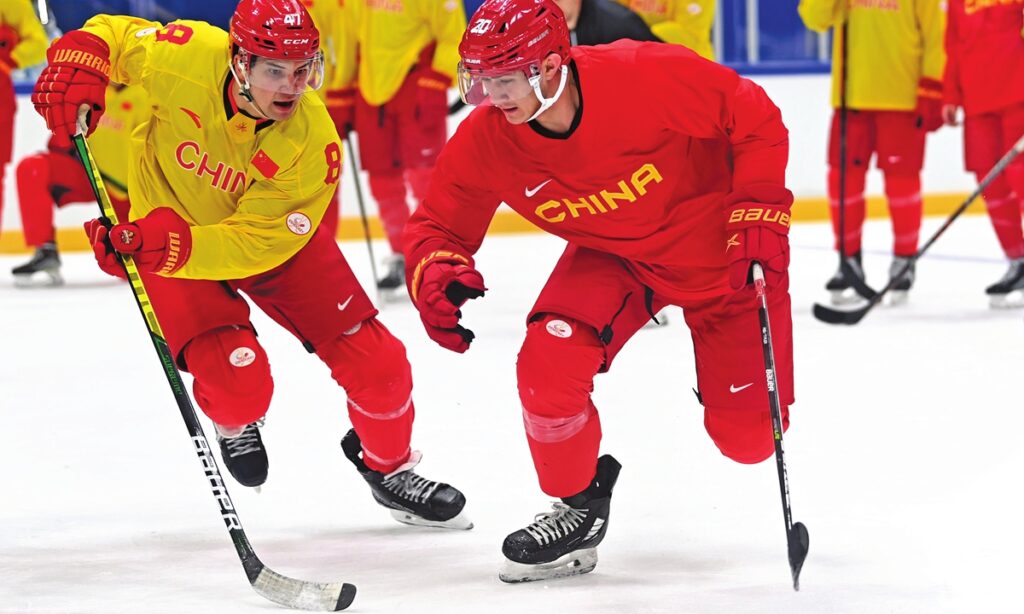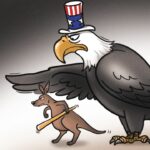Several excellent performances by some “foreign faces” representing Team China have reignited discussion on naturalizing top-tier athletes, which has been a controversial topic among sports fans. But the situation will quickly settle as the public acknowledges their achievements and the country becomes increasingly open and confident.
Chinese free skier Gu Ailing won China its first gold medal on snow in the Beijing 2022 Winter Olympic Games on Tuesday, making the America-born prodigy a success story in Chinese sports’ efforts to introduce overseas talent into Team China.
Beverly Zhu Yi, a figure skater born in California, is another naturalized athlete that has drawn public attention. In the team event on Monday, Zhu met with warm encouragement though she failed to impress some expectant audiences.
About four years ago, naturalization was only being discussed in China. But four years later, it has become a common phenomenon in sports, especially on ice and snow.
The Chinese women’s ice hockey team, which has 13 naturalized players out of 23, delighted Chinese fans by qualifying for the Olympics again after 12 years, fighting for joining the top eight teams. In men’s hockey, 15 out of 25 players are naturalized. Most are of Chinese descent.
Chinese sports fans have had mixed feelings about the naturalization of athletes. Some believe it is a way to stimulate the development of certain sporting events; while others were concerned about factors such as that it may take opportunities away from locals, and they may lack a Chinese cultural identity.
However, analysts noted that in modern sport, it is common for athletes to change nationality, allowing the free flow of sports talents, just like the transnational flow of talent in other fields including science and technology.
“China naturalizing excellent athletes is also a result of the country’s development, as it has been more open and diversified,” experts said.
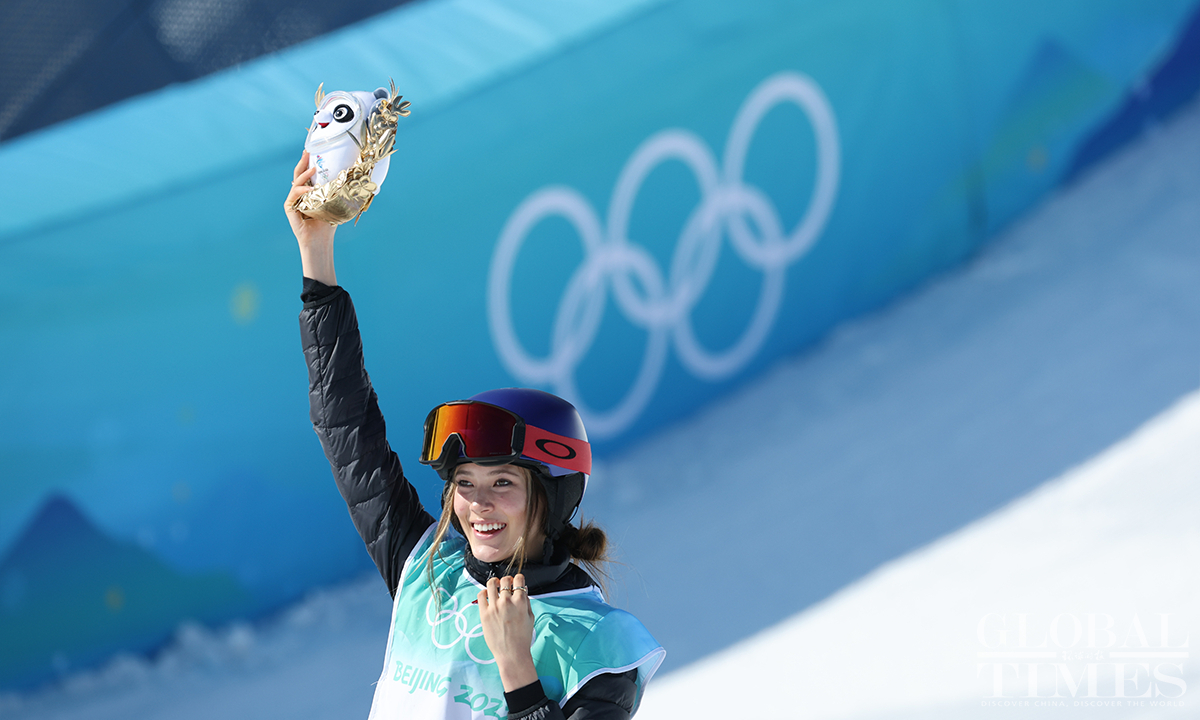
Gu Ailing Photo: Li Hao/GT
Challenges and pressure
After China’s short-track speed skaters Ren Ziwei and Li Wenlong came first and second in the men’s 1,000 meters at the Winter Olympics on Monday, China’s naturalized short-track speed skater Lim Hyo-jun congratulated his teammates on Sina Weibo.
Skater Lim Hyo-jun, born in South Korea, is one of the latest to switch nationality, though he did not qualify to represent China in the Olympics.
The journey of China’s practice of naturalization has been long and bumpy, as authorities have made such attempts in certain sports and have faced huge integration challenges and public pressure.
The first try was in 2001, when China raised the possibility of a naturalization program, which was rejected by the head of the Chinese football Association.
Since 2018, with the full-scale naturalization of top-tier athletes, several foreign soccer players have obtained Chinese nationality, becoming eligible to play for the Chinese national team. Among them are both ethnic Chinese and non-Chinese athletes who have long played for Chinese clubs without Chinese filial ties.
In March 2019, the Chinese Football Association issued the “Chinese Football Association Interim Regulations on the Management of Naturalized Players,” which stipulates the transfer, registration, and participation of naturalized players.
“Naturalized players should be given traditional Chinese cultural education and learn Chinese history and contemporary affairs,” read the regulation.
However, since the implementation of the naturalization policy, some naturalized players have faced disciplinary and performance challenges, and some in the public have accused naturalized players of being unpatriotic, money-hungry “mercenaries.”
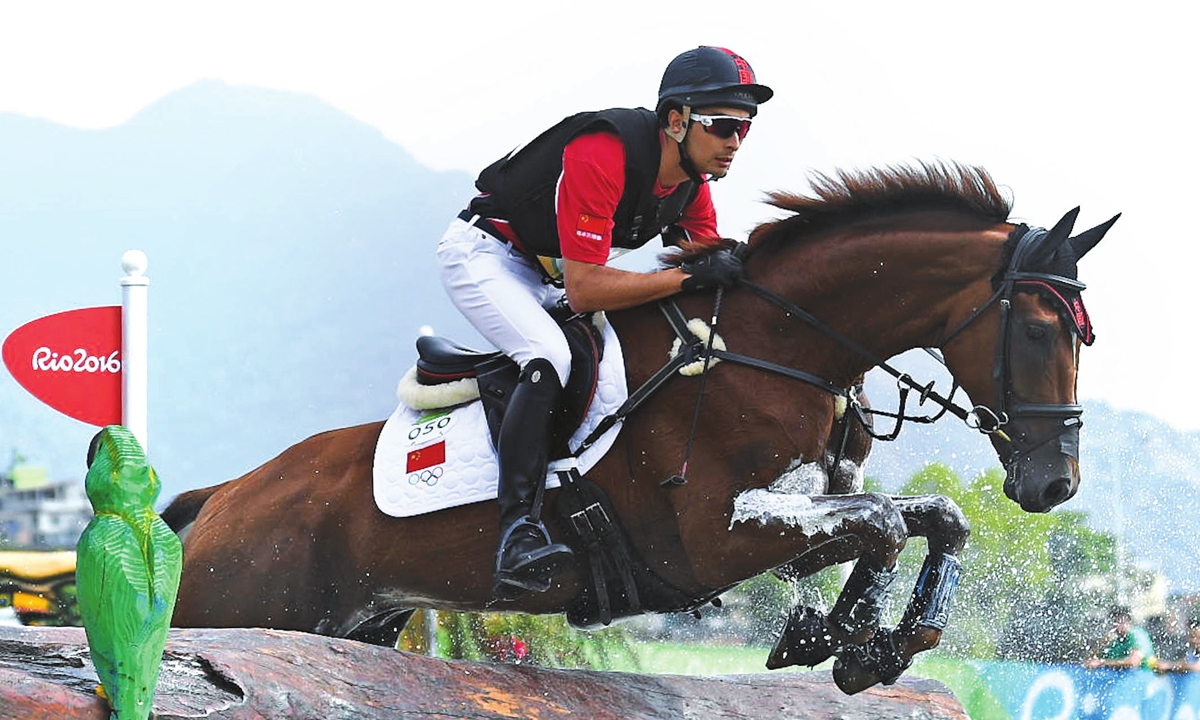
Alex Hua Tian, equestrian sportsman Photo: VCG
Naturalization in other sports has not been as opposed by the Chinese public as in soccer. Alex Hua Tian, for example, who renounced his British citizenship, represented the Chinese equestrian team and ranked eighth in the 2016 Rio De Janeiro Summer Olympics.
Nina Li Schultz, a track and field athlete with a German father who represented China at the Tokyo Olympics in summer 2021, introduced her brother Ty Schultz, a member of the Chinese national ice hockey team, on her Sina Weibo account on January 31. “Now he’s ready for his first Olympics. Good luck to the Chinese team! Wearing the number 77 uniform to fight for the glory of our country!” Zheng wrote.
In other popular sports such as basketball, naturalization has also been discussed.
“Athletes’ naturalization is very normal in talent exchange. The current world is already a community of common destiny. If talent is still limited to one place, how can we talk about openness and sharing?” a sports fan surnamed Zhang told the Global Times.
The Chinese welcome naturalized foreign players and are not afraid of Chinese players acquiring foreign nationalities, as long as China can fortify its own training capacities, cultivating talent, utilizing it well, and constantly attracting the best global talent, Zhang said.
“Sports know no borders, and athletes can be borderless; all of these efforts are for the sake of higher, faster, stronger, and more united sporting future,” he said.
International practice
Many Chinese sports fans probably first learned of naturalized athletes during the 1992 AFC Asian Cup, when China played Japan in the semifinals and fans realized that their Asian neighbors had naturalized athletes. Since then, the Japanese team has continued featuring non-native Japanese players in subsequent tournaments.
Many Middle Eastern countries including Qatar, Iraq, and Iran also absorb naturalized soccer players to boost the national teams’ performance in major tournaments.
At the previous Winter Olympics in Pyeongchang, South Korea in 2018, the South Korean men’s ice hockey team naturalized several Canadian and American players.
Athletes may naturalize for various reasons.
Former Soviet Union-born Oksana Chusovitina, an eight-time Olympic gymnast, renounced her Uzbek nationality for a German one in 2006 for better medical treatment for her son, who suffered from leukemia.
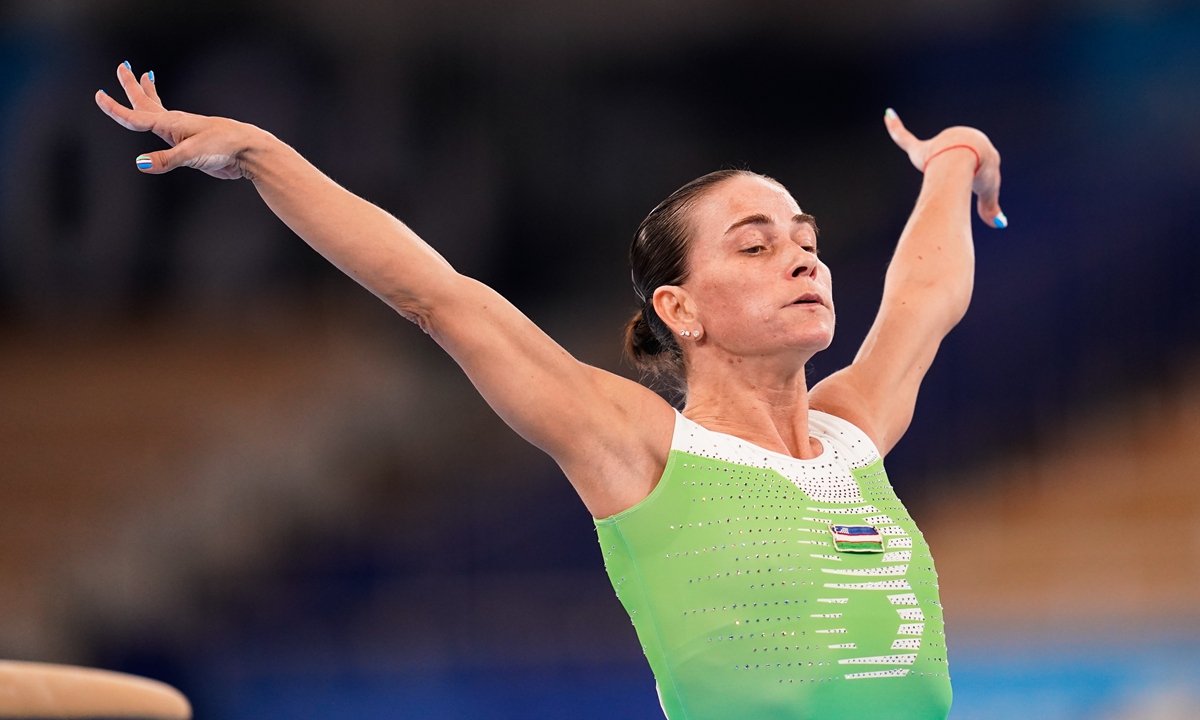
Oksana Chusovitina Photo: VCG
Misha Ge, a figure skater born in Moscow and raised in Beijing who presented China as a teenager, took up Uzbek citizenship to participate in international events.
In the world of table tennis, the “overseas army” is an endearment term given to players of Chinese descent who represent other countries in international competitions simply because of the way too many top players in China in this sport. In November 2021, 58-year-old Chinese-born table tennis veteran Ni Xialian, who won the women’s doubles bronze medal for Luxembourg in 2021 World Table Tennis Championships alongside Sarah de Nutte, received tributes from fans around the world including the Chinese public.
Inviting naturalized foreign athletes to compete at relatively disadvantaged sports is a globally popular phenomenon, said a sports industry insider who spoke anonymously. “Take a look at the Chinese ping pong players who represent other countries. People call them ‘overseas army.’ We have gotten used to seeing them wearing uniforms emblazoned with other countries’ national flags,” he told the Global Times.
Flow of talent
Employing naturalized athletes has become increasingly common in the sports world, but controversial due to issues like nationality change and ethnic identity.
As countries and regions remain the major participants in modern competitive sports, it is understandable that the increasing number of foreign athletes adopting Chinese nationality may cause controversy among a few Chinese people, said Zhang Yiwu, a professor of cultural studies at Peking University.
“They are probably sensitive to the presence of the naturalized players, wondering whether China [naturalizes them] only for the sake of prestige [in the games],” Zhang told the Global Times, saying a small number of individuals may even feel their national pride wounded by seeing “foreigners” representing China.
“But generally, as China continues to develop and open up, mainstream Chinese society views it normally and open-mindedly,” Zhang said. “More people have started to realize that naturalization is the result of two-way selection in a diversified China, which consists of China’s need for sporting talents, and athletes’ identifying with China.”
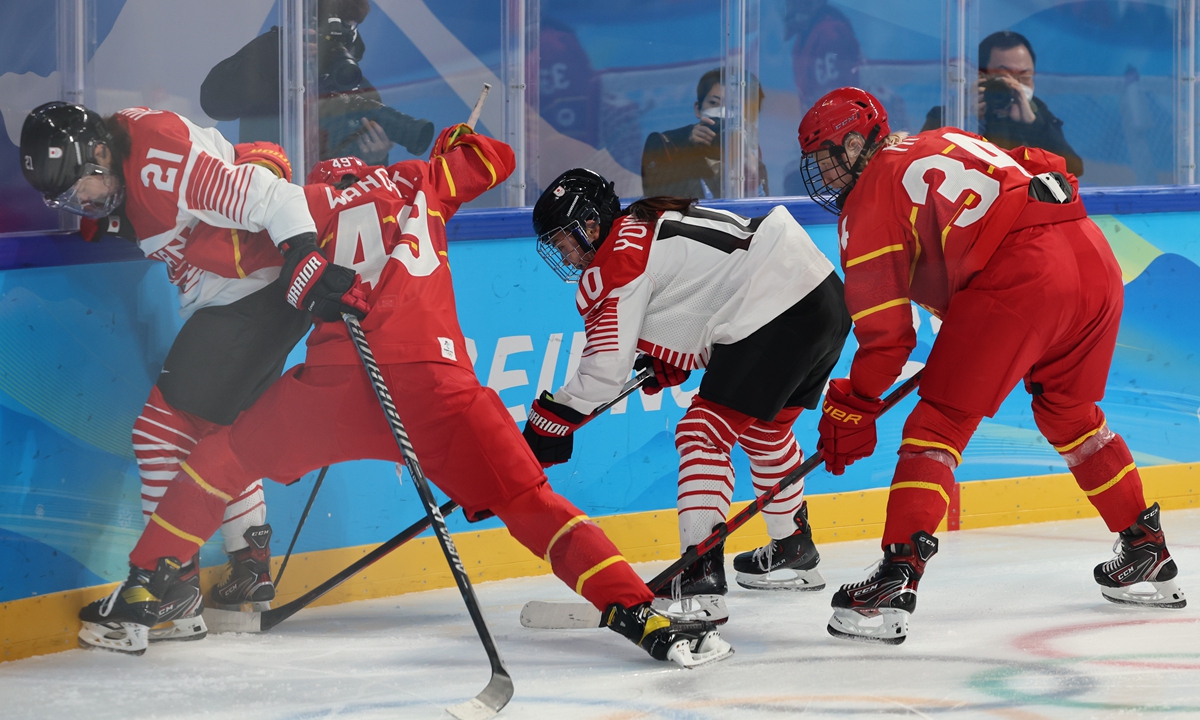
Athletes compete during the ice hockey women’s Group B match between China and Japan at Wukesong Sports Centre in Beijing on February 6, 2022. Photo: GT/Li Hao
Naturalizing athletes is not expedient in today’s China, Zhang noted. “With more top-tier players competing for China, especially in less-popular sports, they will definitely attract more natives to view them and popularize them,” he said.
“But also, the long-term development of sports needs our more attention on strengthening related infrastructure and improvement of youth training systems,” said the anonymous industry insider.
In an interview with the South China Morning Post in 2021, Gu said: “I’m fully American and look and speak the way I do. Nobody can deny I’m American. When I go to China, nobody can deny I’m Chinese because I’m fluent in the language and culture, and completely identify as such.”
After winning her golden medal on Tuesday, Gu told the press, “Sports must be used to unite human beings, not divide us.”
On Tuesday, when Gu, proudly displayed the Chinese dragon pattern she designed on the back of her outfit, nobody in China could doubt her choice.
Players of Chinese men’s hockey team at a training on January 29, 2022 Photo: VCG

